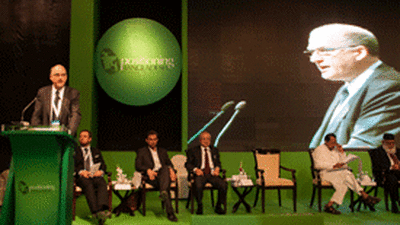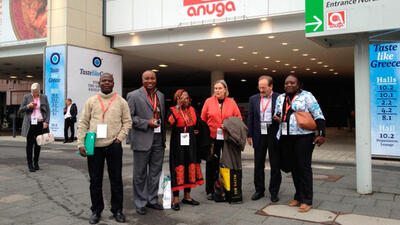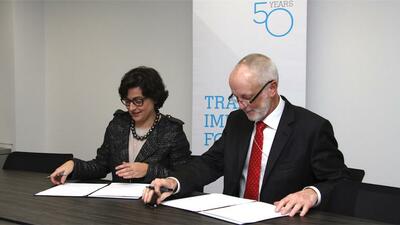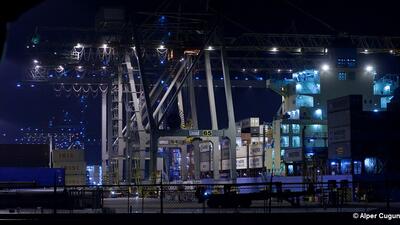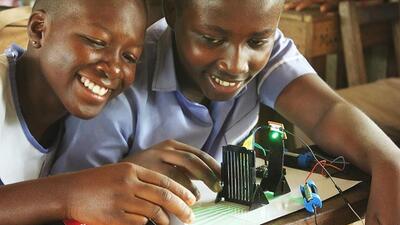
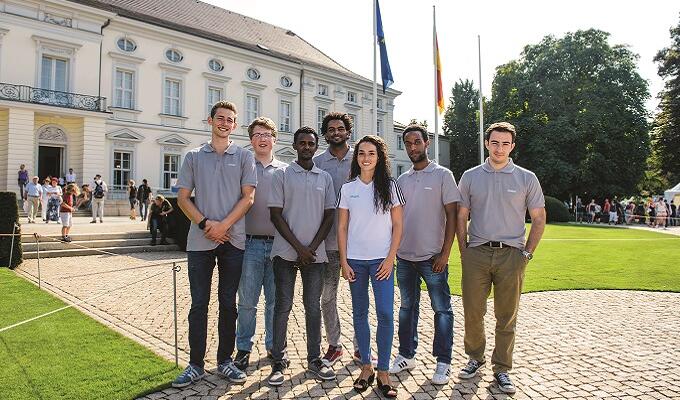
Integrating refugees through work (en)
orientation to ease their integration into the German labour market
It is lunch break at the Siemens Erlangen, Germany, campus. At a table in her company’s cafeteria, Andrea Scheerbaum is swiping on her phone, showing colleagues pictures of Damascus she received over the weekend. Since last year, just like many of her colleagues, Andrea has volunteered to be a ‘buddy’ to one of the about 150 refugees who participated in Siemens’ professional integration programmes by September 2016.
The migrant crisis that hit Europe in summer 2015 sparked unprecedented social engagement from civil society and businesses alike. Employees from a diverse set of German companies started to contribute in their communities. At Siemens, for example, the engagement for refugees has facets ranging from self-organized help groups to financial and in-kind corporate donations to offering housing locations to a structural integration program.
Siemens was one of the first companies to offer a robust program to foster the integration of refugees in the German labour market. In October 2014 it developed a concept of an orientation internship for refugees still in the asylum application process. During the waiting process for an official approval from the German state, refugees have very limited options to participate in the labor market – an issue that requires a tailored solution from industry.
The programme, with internship assignments lasting for two months, starts with an integration workshop and engages the department that offers the position and an external ‘buddy’. Buddies are usually recruited on a voluntary basis from a different department. They are appointed to be there for the interns as additional contacts to help provide cultural and corporate orientation. Siemens started its pilot internship programme in Erlangen in spring 2015 with 10 internship positions. It has been extended to 14 other locations while the company targets to provide up to 100 internships to qualified refugees in 2016. More than 70 internships have already been staffed.
Siemens also offers customized sixmonth intensive courses to prepare talented young refugees to participate in formal vocational training. These courses comprise intensive language classes, pre-vocational training in the areas of mechanics and electronics, and cultural and sport activities, which refugees are offered to take part in with other local trainees to facilitate better integration. Among the current 64 participants, Siemens enrolled 15 into its apprenticeship program that started in September 2016. The remaining candidates will receive support using the company’s local network to find apprenticeship opportunities in peer companies. In Germany, vocational training has a very high status and a successfully completed apprenticeship is a solid foundation to long-term employment there – a fact of which refugees are often not aware.
The practical exposure to the German labour market provides an initial orientation in that market, a platform to sharpen professional competencies and an environment to improve confidence. It may also open up further opportunities to new arrivals – from apprenticeships to fixed-term employments – in the job market. However, the many inclusion efforts also demand commitments from the refugees – they are expected to learn the language and adapt to the local customs in relatively short order.
Siemens employees gain invaluable experiences with colleagues from very different backgrounds, thus fostering the open mindset necessary to promote diversity. Given the implicit prejudice towards migrants in some parts of society, this is a very important measure to counter such sentiments. For example, Siemens’s Medium Voltage and Systems factory in Leipzig, which offers technical internships for refuges, demonstrates how the project is a win-win for both sides. The refugees learn about the German labor market and can test their abilities. But the project also gives Siemens colleagues the chance to get to know the people who are seeking help from the company. Of course, it is not possible to offer all of them a permanent job. But it is a start and every business can do its part within the limits of its own resources.
In September 2015, the United Nations agreed on the 2030 Agenda for Sustainable Development, which sets out 17 goals to be achieved in a joint effort of the global community by 2030. Through its integration programme, Siemens is trying to act as an active contributor to international
development through providing quality education, offering decent working conditions and reducing inequality. This effort, however, cannot be accomplished by the sole effort of a single enterprise. It requires commitments from government institutions, non-profit organizations, working networks and peer companies. It is only possible these challenges if we are able to jointly mobilize resources from multiple dimensions.
By walking hand in hand we can find an integrated solution and help make this a better world to live in: especially for those who have had their homes and existence uprooted by conflict or other disasters.




